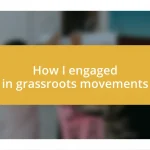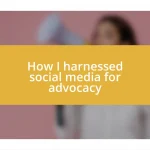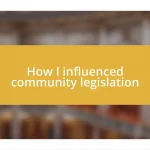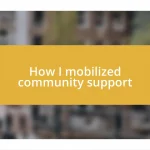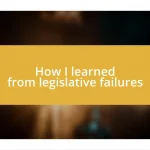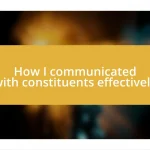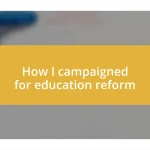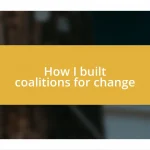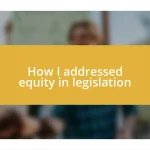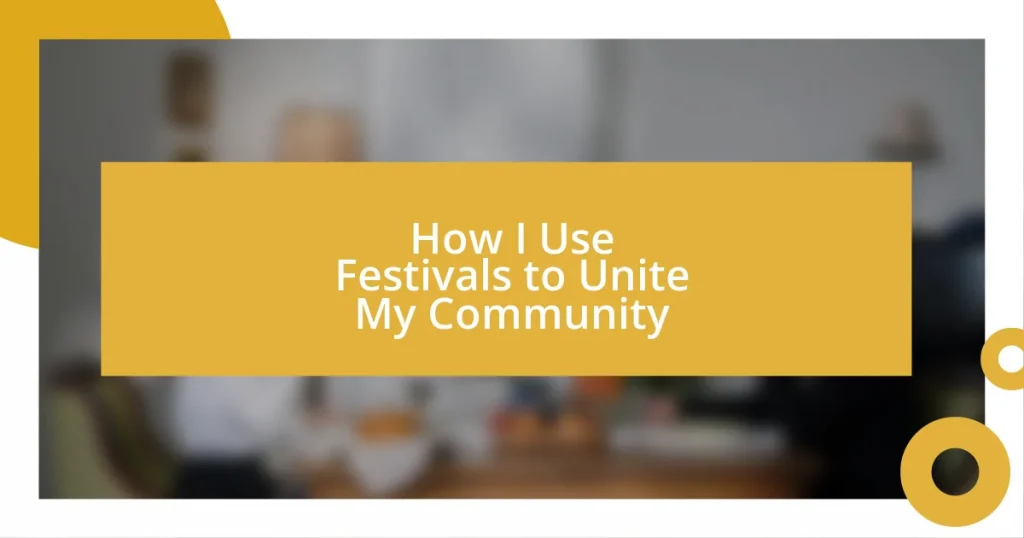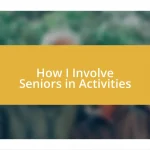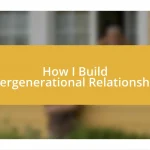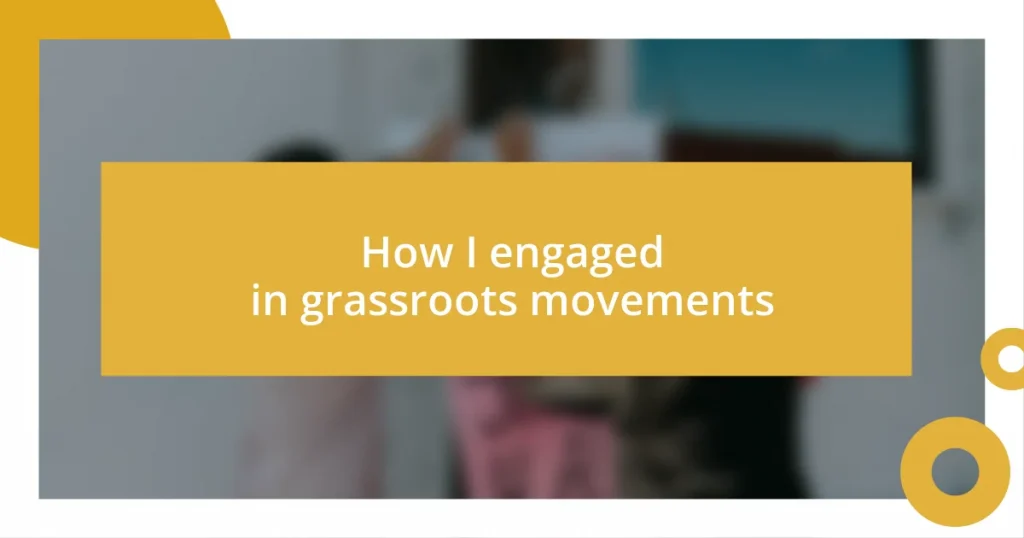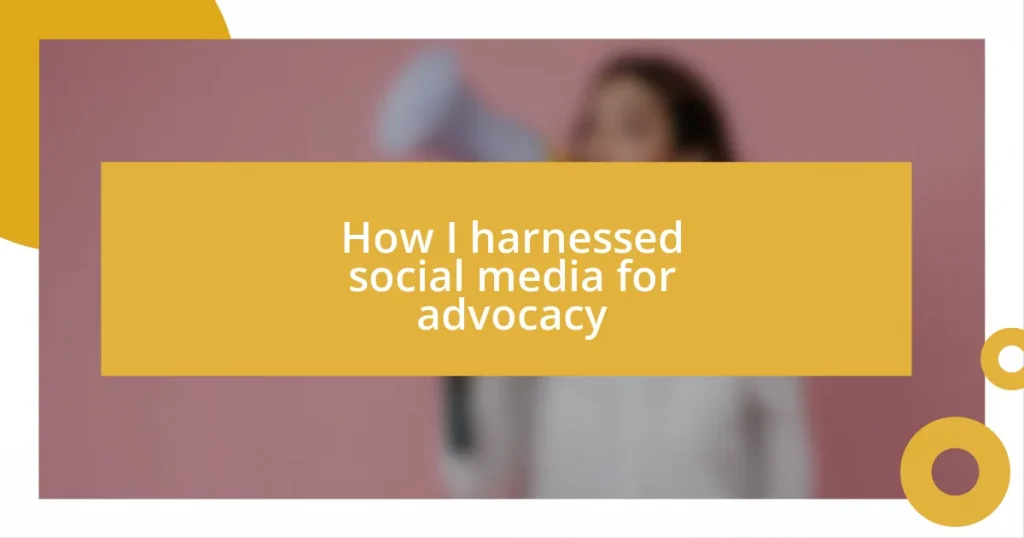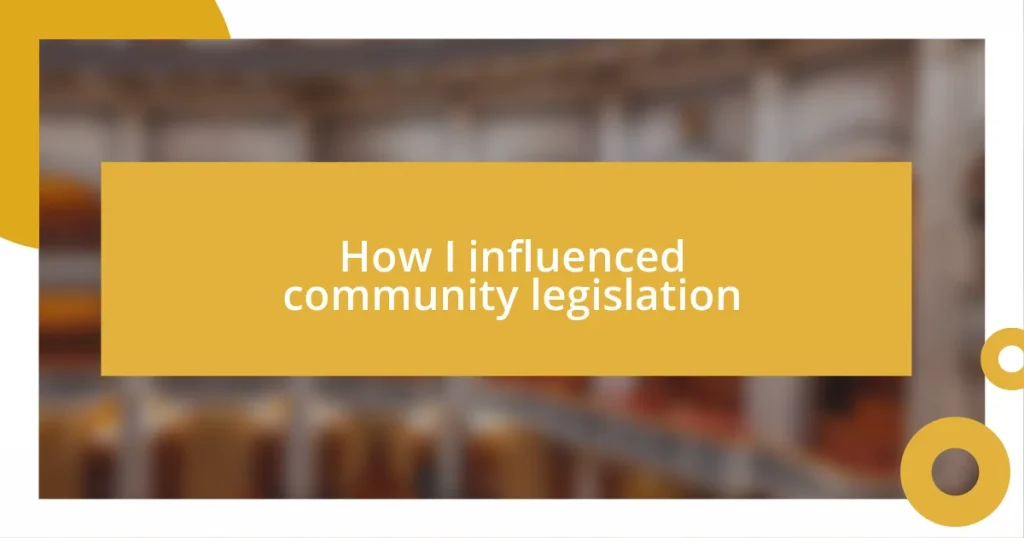Key takeaways:
- Community festivals foster connections, celebrate local culture, and provide a sense of belonging, turning strangers into friends.
- Engaging local talent and businesses enhances the festival atmosphere, supports the local economy, and strengthens community ties.
- Evaluating festival impact reveals that shared experiences reinforce unity and create lasting relationships within the community.
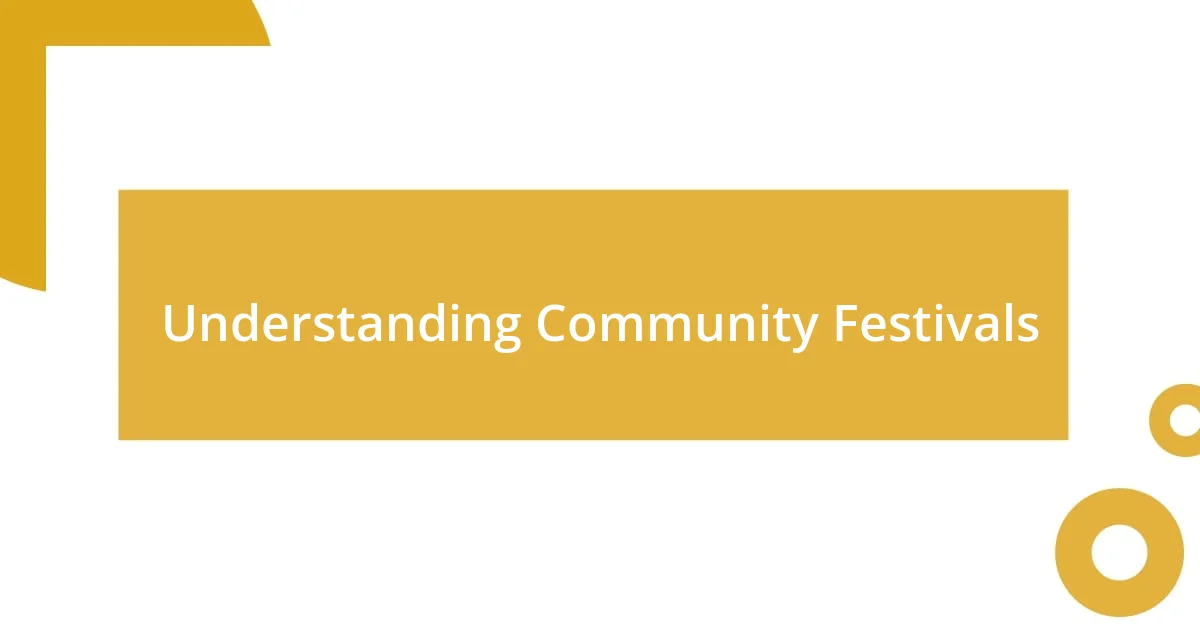
Understanding Community Festivals
Community festivals are vibrant expressions of culture, diversity, and unity. I still remember the first festival I attended in my neighborhood; the excitement in the air was palpable as people gathered, sharing laughter and stories. It struck me then—what a powerful way to foster connections among neighbors who might otherwise just pass by each other each day.
These festivals often serve as a backdrop for celebrating local traditions, giving everyone something to look forward to. Each tent and booth becomes a storytelling space, filled with the rich tapestry of our collective history. Have you ever noticed how different generations come together, with grandparents sharing old tales while children dart about with grins? That interaction is truly the heart of a community festival.
Moreover, such events provide an opportunity for local businesses and artisans to showcase their talents. I cherish the moments spent talking with the vendors, discovering unique crafts that often reflect our community’s spirit and creativity. Isn’t it incredible how a single day can stir emotions of pride, belonging, and joy?
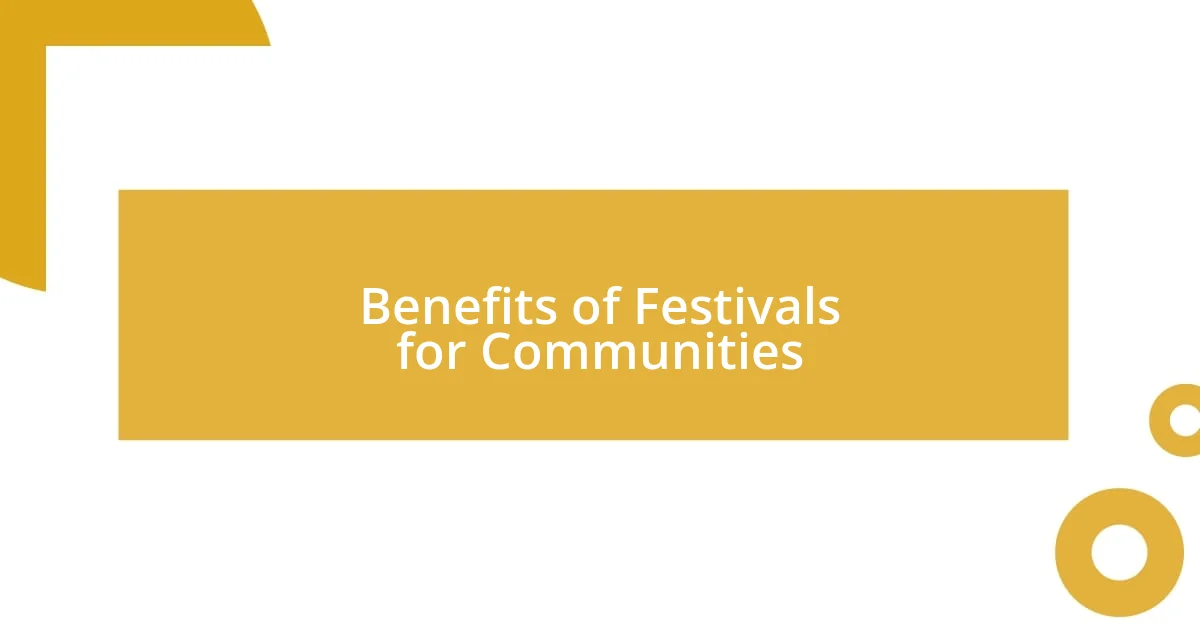
Benefits of Festivals for Communities
The impact of festivals on communities is profound, weaving together threads of culture, connection, and joy. I’ve seen firsthand how these gatherings uplift spirits and create lasting bonds. At last year’s spring festival, I noticed how people from different backgrounds came together, sharing food, music, and stories. It was a vibrant tapestry that reflected our shared existence.
Here are some key benefits of community festivals:
- Strengthening Relationships: Festivals cultivate personal interactions, turning strangers into friends. I remember chatting with my neighbor for hours while watching local performances, something that never happened in passing moments on busy weekdays.
- Economic Boost: Local businesses thrive during festivals, drawing in foot traffic and raising awareness for their products. I often discover unique offerings I wouldn’t have known about otherwise, like artisanal crafts or homemade treats that bring a smile to my face.
- Cultural Preservation: Festivals serve as a platform for sharing and celebrating cultural heritage. I find joy in watching children learn traditional dances and crafts from elders, ensuring that these practices continue for future generations.
- Community Pride: The energy at these events fosters a sense of belonging. As I join in the cheers for local talent on stage, I feel my heart swell with pride for my community and its richness.
Through these experiences, I’ve come to realize that festivals are more than just events—they’re a celebration of who we are together. They remind us that amidst our busy lives, we can pause, connect, and celebrate our shared journey.
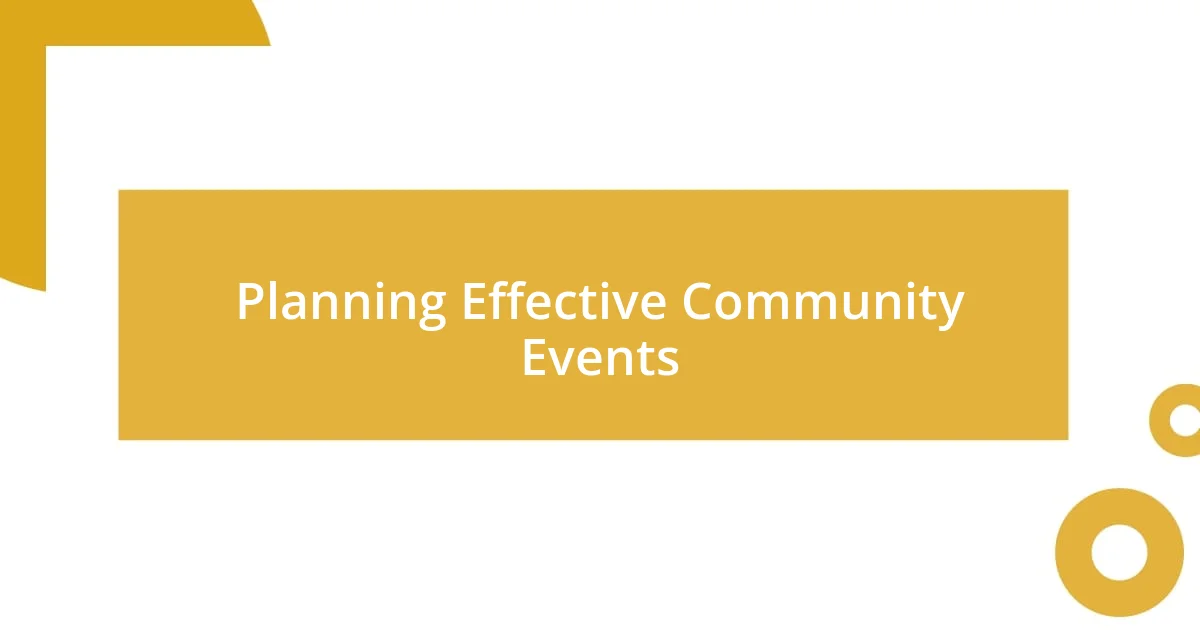
Planning Effective Community Events
Planning effective community events requires careful thought and consideration. When I first coordinated a local art festival, I had to ensure that we balanced different interests. I recall sitting down with a group of neighbors, discussing everything from food vendors to entertainment. It was enlightening to see how everyone’s unique perspective contributed to the overall vision. Listening to their ideas not only shaped the event but also fostered a deeper sense of community ownership.
Next, I learned the importance of clear communication and promotion. One year, we relied heavily on social media, but I quickly realized that not everyone was plugged into that world. By incorporating printed flyers and engaging local radio stations, we reached a broader audience. The success of our event skyrocketed, and the turnout was incredible. Have you ever felt the thrill of seeing familiar faces and new ones mingling at an event you helped create? There’s something truly satisfying about knowing you’ve connected people through shared experiences.
Finally, evaluation is key to continuous improvement. After each festival, I would gather feedback from participants and volunteers. I remember feeling a mix of pride and humility as I read their responses, highlighting both the successes and areas for improvement. This reflection guided my planning for future events, allowing me to build on what worked and address any concerns. Reflecting on experiences fosters a cycle of growth, making each festival even better than the last.
| Event Planning Aspect | My Personal Experience |
|---|---|
| Community Involvement | Engaged neighbors in brainstorming sessions to bring diverse ideas |
| Promotion Strategy | Expanded reach through printed materials and local media for greater attendance |
| Post-Event Reflection | Gathered feedback to enhance future festivals |
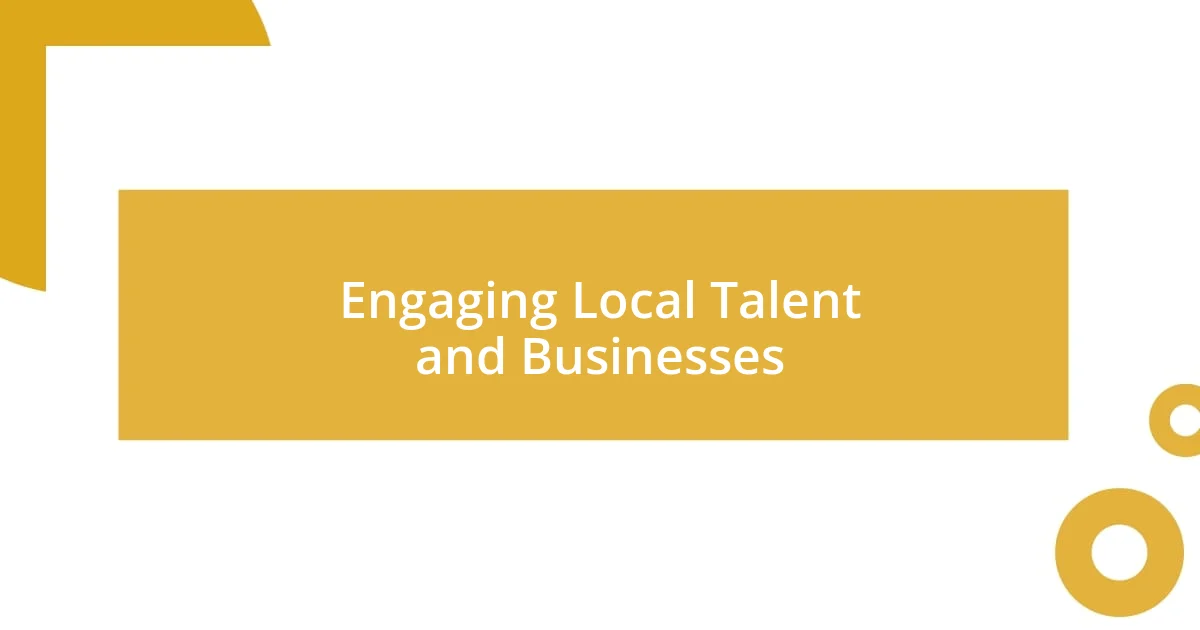
Engaging Local Talent and Businesses
Engaging local talent and businesses is essential for creating a vibrant festival atmosphere. I remember the joy when a local band performed at our last street festival. Their energy lit up the crowd and gave young musicians an opportunity to shine. It was a reminder that our community is bursting with talent waiting to be discovered. How incredible is it to witness someone you’ve seen performing at open mic nights now playing for a larger audience?
Supporting local businesses during these events is equally important. I’ve seen firsthand how vendors displaying their wares can transform a festival into a bustling marketplace. At one festival, I stumbled upon a local baker who made the most divine pastries. The smile on her face as she sold out her goods was contagious. I couldn’t help but think, how often do we overlook these hidden gems in our daily lives? Incorporating these local talents not only boosts the festival atmosphere but also strengthens the local economy and builds lasting relationships between community members and business owners.
Every time I collaborate with local artists and shops, I find a renewed sense of community spirit. One year, we partnered with a nearby craft store for a workshop. I watched families come together, crafting items with their children—a heartwarming sight that echoed the festival’s theme of unity. Isn’t it inspiring when we see our neighbors sharing their skills and passions? Engaging local talent and businesses truly weaves a stronger community fabric, making every festival not just an event, but a shared experience that enriches our lives.
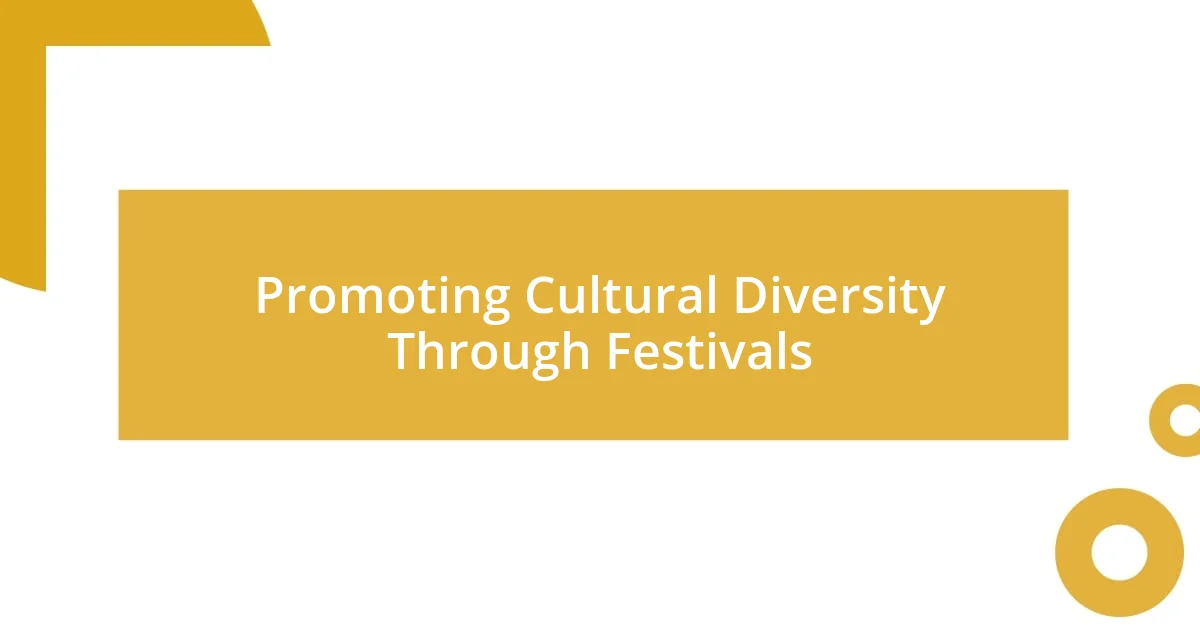
Promoting Cultural Diversity Through Festivals
When I think about promoting cultural diversity through festivals, I’m reminded of a vibrant international festival we organized a few years back. Different cultural groups showcased their traditions, from dance performances to culinary delights. The air was filled with laughter and curiosity as people eagerly tried new foods and learned traditional dances. It was incredible to see the joy on everyone’s faces as they embraced cultural exchanges—such moments remind me how festivals can break down barriers and foster understanding.
One thing that struck me was the storytelling aspect of these events. I recall a captivating performance by a local storyteller who shared folklore from her heritage. As she wove her tales, I noticed children and adults alike hanging on to her every word. It made me realize how powerful narratives can be in bridging cultural gaps. Have you ever felt the pull of a story that resonated with your own experiences? These narratives make us feel connected, humanizing the diverse backgrounds we come from.
I also recall the moment I participated in a cooking demonstration that highlighted diverse culinary traditions. Sharing my family’s recipe while savoring dishes from other cultures felt like a collective feast for the soul. It dawned on me that food, in particular, has a magical way of bringing people together. Have you ever bonded with someone over a shared meal? It’s moments like these that cement our understanding of one another, proving that our differences truly make us richer.
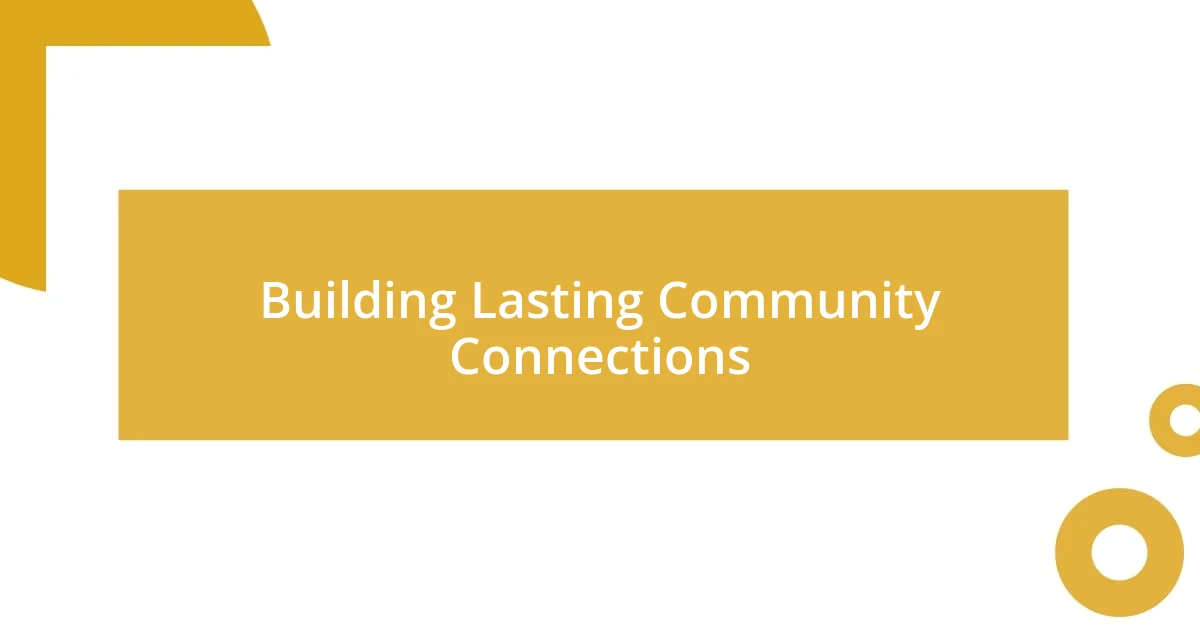
Building Lasting Community Connections
Building connections within a community is something I find deeply rewarding. I vividly remember a neighborhood block party where everyone, from young kids to elders, came together to share their stories and experiences. One of the most heartwarming moments came when an elderly gentleman started sharing tales from his childhood—stories that resonated with many of us. It’s funny how a simple gathering can spark conversations that echo through generations, highlighting our shared history.
Creating community connections isn’t just about social interactions; it also involves celebrating our similarities and differences. During one festival, I initiated a “friendship booth” where attendees could write positive messages to a stranger. To my surprise, not only did I witness friendships blossoming, but I also saw smiles spreading throughout the crowd. I often ask myself, how many friendships could we cultivate if we took a moment to reach out? It’s powerful to consider that the simple act of sharing encouragement can turn a festival into a true celebration of togetherness.
I also believe in the importance of follow-up engagement beyond the festival days. After one successful event, we initiated monthly meet-ups to keep the community spirit alive. I recall the excitement of the first meet-up when familiar faces gathered again, infused with stories about how they connected during the festival. Isn’t it incredible to think how that initial spark can ignite lasting relationships? These connections transform our community from mere acquaintances into a close-knit family, making every interaction feel like coming home.
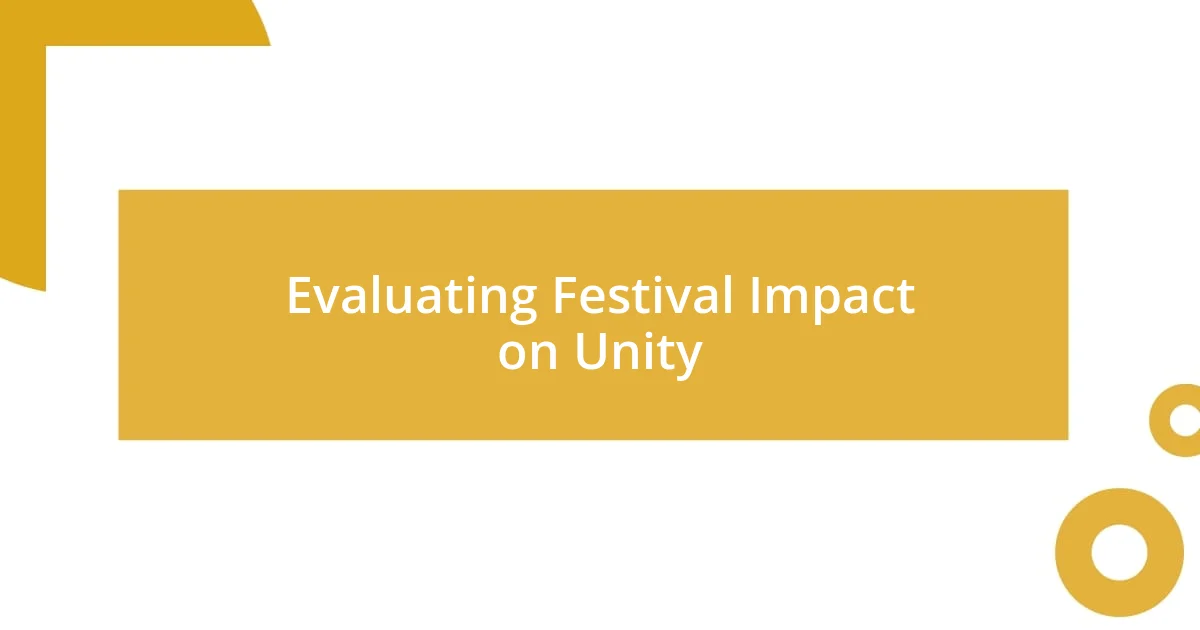
Evaluating Festival Impact on Unity
Evaluating the impact of festivals on community unity always leaves me pondering how these gatherings create a shared space for connection. I remember attending a local music festival that featured artists from various backgrounds. As I watched families dancing together, I couldn’t help but notice the spontaneous mingling that took place. It became clear that music has this unique ability to transcend language and cultural barriers, forging bonds that might never have been formed otherwise.
Analyzing the aftermath of our festivals often reveals remarkable insights. After one event, I conducted a simple survey asking attendees how the festival impacted their sense of belonging. The responses were heartwarming—many expressed feeling closer to their neighbors and those they would usually pass by without a second glance. Have you ever considered how a shared experience can transform simply knowing someone into feeling connected to them? It’s fascinating how these memories become emotional anchors in our community fabric.
I also reflect on the stories we share during and after these events. Every time I exchange thoughts with attendees about their festival experiences, I’m reminded that unity is often about shared narratives. I recall chatting with a newcomer, who told me how she found solace in the warmth of our community during a challenging time. Isn’t it uplifting to think that a festival can offer not only joy but also a supportive network? This realization solidifies my belief that festivals play a crucial role in enriching the human experience and fostering genuine unity.
